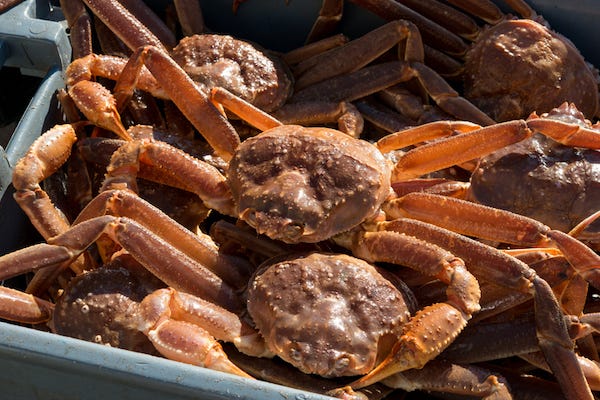
Fishermen (and hungry diners) were looking forward to the upcoming Alaskan snow crab season, but their hopes and dreams will have to put on hold for now, due to an unfortunate problem:
Billions of crabs have gone missing.
The Alaska Department of Fish and Game announced Monday that the Bering Sea snow crab season will remain closed through the spring of 2023 as the population of snow crabs in Alaska has drastically plummeted, and officials can not seem to figure out why. Or how.
Benjamin Daly, a researcher with the Alaska Department of Fish and Game, told CNN, “Snow crab is by far the most abundant of all the Bering Sea crab species that is caught commercially, so the shock and awe of many billions missing from the population is worth noting – and that includes all the females and babies.”
The official cause for the reduction is “overfishing,” but experts advise it’s not what we think.
Michael Litzow, the Kodiak lab director for NOAA Fisheries, told CNN, “We call it overfishing because of the size level, but it wasn’t overfishing that caused the collapse, that much is clear.”
In this instance, “overfished” is a technical definition that triggers conservation measures. Litzow believes that “human-caused climate change” is a significant factor in the crabs’ alarming disappearance.
Temperatures around the Arctic have warmed four times faster than the rest of the planet, according to scientist. Climate change has triggered a rapid loss in sea ice in the Arctic region, particularly in Alaska’s Bering Sea, which in turn has amplified global warming.
“Closing the fisheries due to low abundance and continuing research are the primary efforts to restore the populations at this point,” Ethan Nichols, an assistant area management biologist with the Alaska Department of Fish and Game, told CNN.


